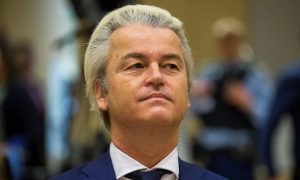The Netherlands and the fight against populism
External Relations 13 March 2017On March the 15th the European Union will face a populist threat, again. The populist threat is a common issue throughout the western countries, with important effects on their political structures, values and traditions. Many words have been spoken and many lines written about this old story that has been poisoning the European political conscience. Anyway, there is not a consistent solution to the harvest political challenge of the XXI century.
On March the 15th the Netherlands will gather to polls in occasion of one of the most important and feared elections of recent years. The Popular Party for Freedom and Democracy (VVD) – the party currently heading the coalition government – has collected approval ratings much lower than the Freedom Party (PVV), a xenophobic and eurosceptic movement, lead by Geert Wilders. Mr. Rutte, the current Prime Minister and leader of VVD, has strongly campaigned in order to collect preferences of right-voters, appealing to Dutch political conscience and common traditional values of freedom and tolerance.
In a very harsh speech to Dutch people, Mr. Rutte said “Discomfort will increase if people misuse our freedom, especially since they came to this country to enjoy those freedoms … I understand that people think: if you reject our country fundamentally, I’d rather see you go. I have the same feeling. Act normal or leave”.
Recently, the Netherlands have often raised its voice against the EU, being one of the most eurosceptic members of the Union, but always fully respectful of the European institutions and their choices. Many fear that something is going to change with these elections that could represent a testing ground of the populist sentiments which lead the UK out of the Union and Mr. Trump to the White House.
Historically centre of a colonial empire and cradle of modern capitalism, the Netherlands have built their history and success on its physiologic internal diversity, multiculturalism, tolerance, and openness. In particular, the Netherlands played a crucial role in the European integration process, giving the very first boost to integration in a number of sectors and subjects (from the coal and steel market in 1951, to military defence in 1952, and the nuclear integrated power in 1957). The Netherlands have been in years one of those member states where euroscepticism widely spread: there exist in facts huge problems linked to extremism, anti-semitism, and islamophobia.
It is not clear whether the External action policy of the European Union will be impacted by the possible PVV’s victory, and in what specific way.
As far as foreign relations are concerned, it is utterly crucial the new political discourse in the Netherlands. PM Rutte had the chance to speak volumes about the current state of the art of the European integration process. His harsh and nationalistic discourse became in facts the more and more similar to the level of the average populistic discourse. Strong terms, nationalistic ego and domestic values seem to have imposed in the political debate, and in an unprecedented way. These populist “topoi” are the increasingly used not only by populist movements, but by establishment-parties as well. This is a very first time in Europe, and it may be a strong solution to the political crisis that recently affected member states like UK, Italy and France.
Fighting with equal arms is a strong strategy towards populist movements, but these instruments can reveal themselves as a double-edged sword.
The Dutch government recently prevented Turkey’s foreign minister from visiting the Netherlands to address Turkish voters there, in a breach of diplomatic protocol.
The Dutch government stated it had to withdraw landing rights for the foreign minister, Mevlut Cavusoglu, because of the “risks to public order and security”.
These intense diplomatic arguments highlighted the extraordinary heat generated by the upcoming referendum in Turkey on precise constitutional amendments that could turn its political system into something more authoritarian, vastly expanding Erdogan’s powers. In the view of the referendum – set for April 16 -, several European member state, including the Netherlands and Germany, have canceled appearances by Turkish ministers supporting Erdogan. The Turkish campaign is coinciding with a scratchy election season in Europe that has seen a surge in popularity for right-wing, anti-immigration candidates. Nationalist or anti-Muslim politicians such as Geert Wilders in the Netherlands have called for Turkish politicians to be barred from campaigning in their countries – adding to the pressure on European leaders to accommodate such sentiments – gaining a strong popular consensus.

Dylan Martinez/Reuters


